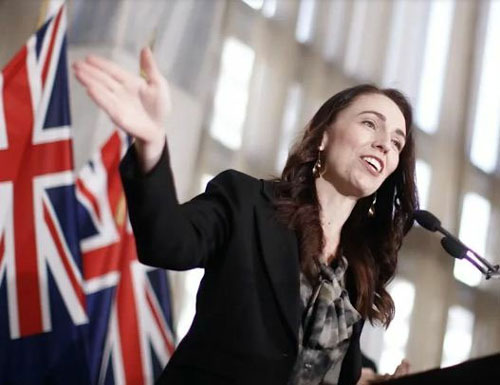New Zealand, a U.S. ally with a reputation for eco-nomic dependence on China and conflict avoidance, wants to participate in a landmark trilateral defense deal between the United States, the United Kingdom, and Australia.
“And cyber is one area that we’d certainly be interested in, but there’s no detail yet — so we will be looking for detail,” New Zealand High Commissioner to Australia Annette King told Austra-lian media this week.
That prospect could fortify cooperation with New Zealand, despite Prime Minister Jacinda Ardern’s aversion to the nuclear submarine technology at the heart of the AUKUS deal, as the pact is known.
The current members of the deal expect the pact to allow an expansion of U.S. military presence in the region and an upgrade of various capabilities across the U.S. alliance network in the region.
“AUKUS is not designed to be in any way exclusive … It’s a first step in terms of industrial development between like-minded partners,” British General Nicholas Carter, the U.K.’s chief of defense staff, told the Center for a New American Security when asked about Japan’s potential involvement last week.
“If there were opportunities there, then that’s the direction of travel it would go in. The same ap-plies to Five Eyes and also to other like-minded countries.”
New Zealand’s position within Five Eyes has appeared unsteady recently, as Ardern’s government downplayed the prospect of an “alliance of democracies” to manage threats from China and urged Australian officials to “show respect” to Beijing.
A senior British lawmaker concluded soon after that New Zealand had “just left large parts of the Five Eyes community,” even as Australian officials bore the brunt of China’s economic pressure due to Canberra’s call for an investigation into the origins of the coronavirus pandemic.
“New Zealand and Australia were in a different space to begin with, and this has perhaps just made that look sharper again,” Victoria University professor David Capie said last month. “I think this alliance underlines that they’re going in very different directions.”
The new interest from King, New Zealand’s top envoy to Australia, coincides with a State Department decision to launch a new Bureau of Cyberspace and Digital Policy.
“This will integrate the core security, economic, and values components of our cyber agenda,” State Department spokesman Ned Price told reporters Monday.
“We also plan to establish a new special envoy for critical and emerging technology to lead the immediate technology diplomacy agenda with our allies, partners, and across the range of multilateral fora.”—Agencies










